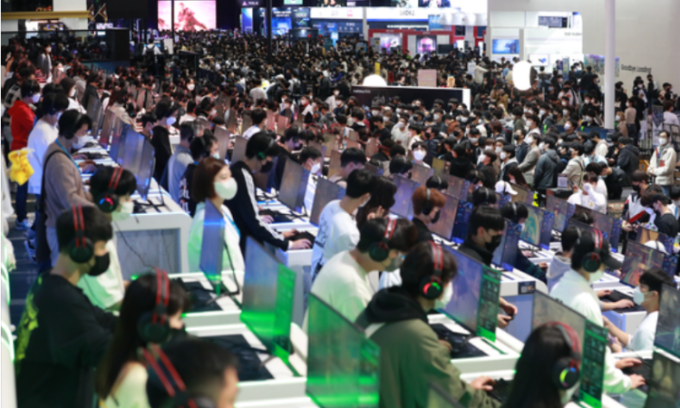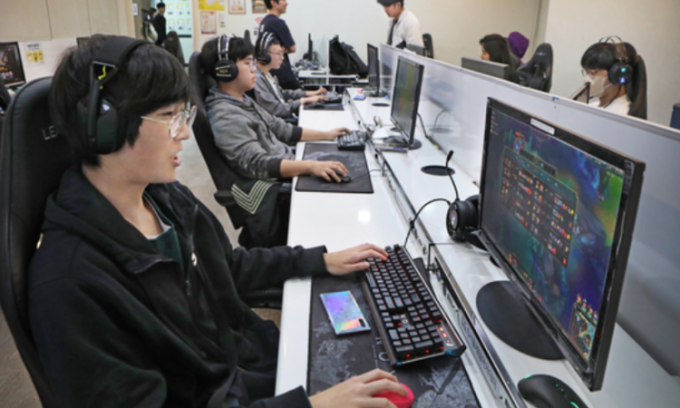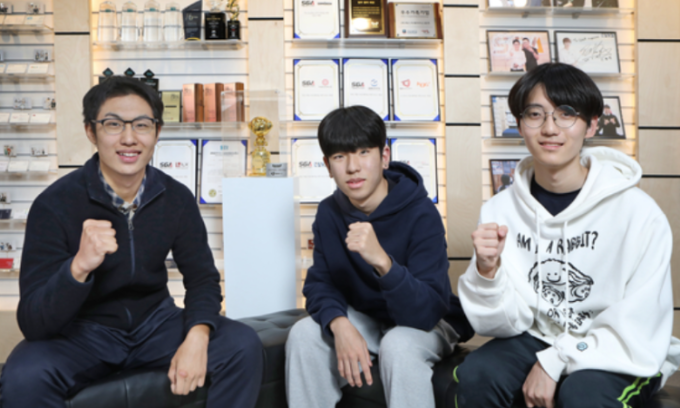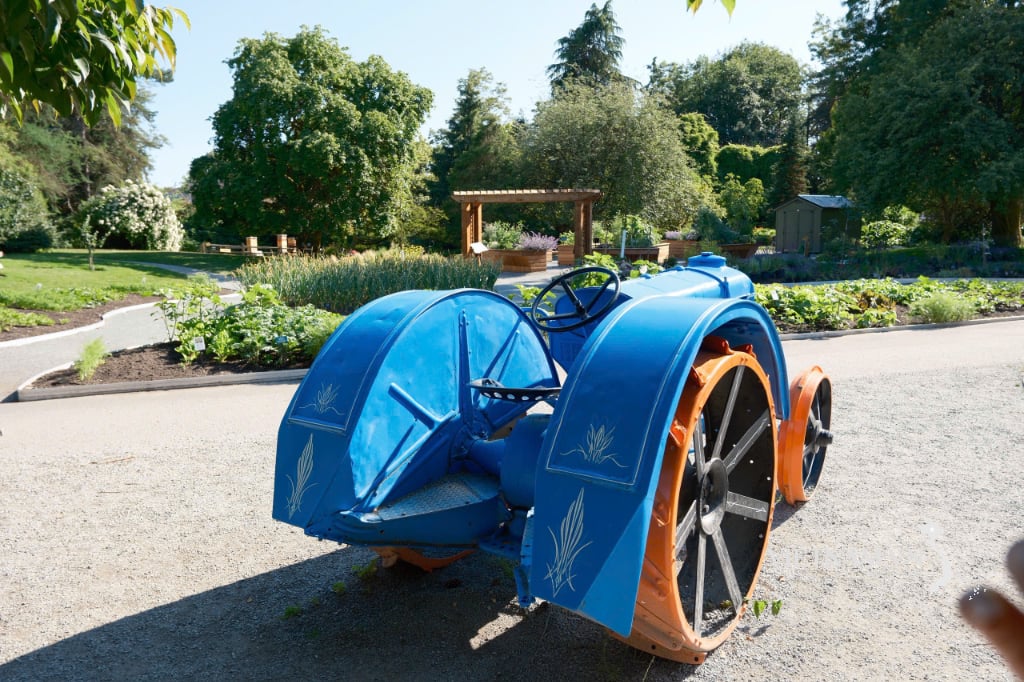After school, many teenagers in Seoul flock to hagwon, centers for training gamers.
These hagwon centers don't teach math or English, but instead teach League of Legends (LoL) and eight other video games, including Battlegrounds, Apex Legends, and Valorant.
Yang Hyun-jik, a 12th-grade student, is one of 2,000 students at the Seoul Video Game Academy in Jongno District, the heart of the South Korean capital, hoping to become the country's next legendary gamer.
Like many other Korean teenagers, Yang started playing video games in elementary school for entertainment and to meet friends. In middle school, he began seriously considering a dream many aspire to but few dare to pursue: becoming a professional gamer.

The G-star 2022 video game exhibition in Busan, South Korea. Photo: Yonhap
The high salaries of gamers participating in the Korean League of Legends Championship (LCK) are one of the factors motivating young Koreans to pursue this career path.
The average annual salary of an LCK player in 2022 reached approximately 600 million won (US$450,000), double the average income of a K League soccer player (US$212,000) and three times that of a professional baseball player (US$116,000).
"Watching professional gamers compete in championship matches has inspired me a lot," Yang said. He had a passion but felt it wouldn't lead anywhere, so he decided to train at the Seoul Video Game Academy in early 2020.
The academy is open all week. Weekend classes are packed with students from all over the country. Before enrolling, Yang thought the key to becoming a professional gamer was spending hours practicing. But the academy only encourages students to play games for less than two hours a day. Some even advise against playing if they aren't in top form.
"It's a time management strategy, minimizing weaknesses and maximizing strengths within a given timeframe," said Park Se-woon, the academy director. "Training effectiveness peaks in the 1-2 hour period; after that, the human brain loses focus and performance declines, similar to other physical sports ."

Students at the Academy of Video Games in Seoul, South Korea. Photo: KJD
The academy's coaches are former professional players or high-ranked gamers. They regularly interact and play simulations with the students, as well as assign homework, often requiring them to watch professional matches for discussion in the next class.
According to Director Park, many esports games, such as League of Legends, are team games that require teamwork. The first thing the academy teaches is teamwork and abandoning bad habits while playing games.
In each classroom, there was a banner listing the top 10 pieces of advice from Lee Sang-hyeok, also known as Faker, considered the greatest League of Legends player in history. The first one was, "Put the team's interests before your own."
"You'll be kicked out of class and sent to the disciplinary room if you bang on the desk or smash the mouse. Those who swear will get an additional 30 minutes of disciplinary action. They also get lectured on how a lack of anger management skills affects teamwork," said Kang Dong-yun, a student at the academy.
Students' regular schooling is also prioritized. That's why, from Monday to Friday, the game academy's classes take place after regular school hours. According to Mr. Park, this ensures students have more career paths in the future, even if they don't become professional gamers. The academy also encourages students to improve their foreign language skills, as the international gaming market is larger than the domestic market.

Professional gamer Jang Jung-hoo (left) and students Kang Dong-yun and Yang Hyun-jik in the lobby of the Seoul Video Game Academy. Photo: KJD
The global esports market size was estimated at $1.38 billion by the end of 2022, a 21.7% increase year-on-year. The South Korean market accounted for 9.9% of this total.
The projected size is expected to increase to $1.87 billion by 2025. "Nowadays, many parents send their children to hagwon because they want them to develop good habits, rather than falling into uncontrolled gaming addiction," said one coach.
This openness stems from the fact that three out of four South Koreans play video games.
Potential gamers are happily pursuing their dreams at hagwon (traditional Korean gaming clubs), but the path is also fraught with challenges. Only about 0.001% of those who pursue a professional gaming career in South Korea qualify to compete in the LCK.
(According to Korea JoongAng Daily )
Source link











































































































Comment (0)